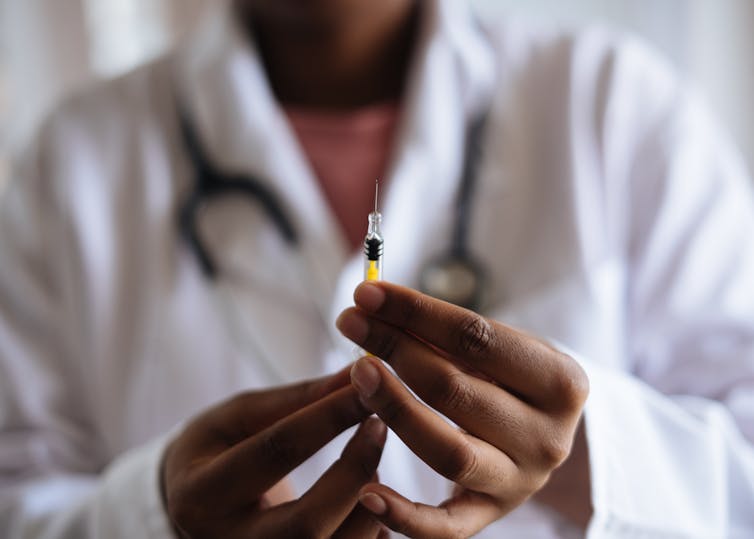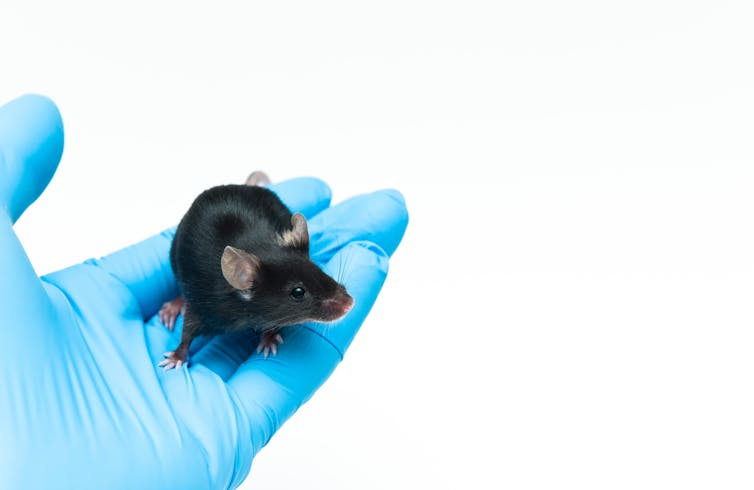
As the global spread of severe acute respiratory syndrome coronavirus (SARS-CoV-2) — the cause of COVID-19 — continues, we learn more about the effects of this new virus.
For many respiratory pathogens, including influenza viruses and respiratory syncytial viruses, the elderly experience the most severe forms of disease and the highest death rates. For example, for every 10,000 Americans between 18 and 49 years old, only 0.4 people die from the annual flu. That number increases to 5.9 people per 10,000 for those aged 65-74 years, and 47.5 people for those over 74 years old. However, most of these diseases can also have a predilection for causing severe disease in the very young.
In this respect, COVID-19 is very different. Data from relatively early in the COVID-19 pandemic showed a dramatic difference in the rates of age-associated deaths, with a case fatality rate of 4.5 per cent for patients ages 60 and older versus only 1.4 per cent for those under 60 years old, with those under 30 years ranging from zero to 0.19 per cent.
We are immunologists with research programs devoted to developing vaccines. With COVID-19 placing a spotlight on the elderly as the age demographic most in need of a vaccine, we have felt compelled to evaluate how well scientists are doing at tailoring immunization strategies for this population. Our conclusion is that vaccinologists, ourselves included, have largely failed to focus their research on tailoring vaccine technologies to induce robust immune responses in the elderly.
A critical factor that makes the elderly more susceptible to infectious diseases is what immunologists call “immunosenescence”: the decline in the immune system’s functionality as people age. This is also associated with an increase in the incidence of inflammatory diseases, because an elderly body tends to be in a state of chronic low-grade inflammation. This “inflamm-aging” is one reason why older people have tendencies to develop more severe forms of respiratory diseases.

The key problem with SARS-CoV-2 infection is inflammation in the respiratory tract, which can be exacerbated in individuals predisposed towards potent inflammatory responses.
Immunosenescence also results in diminished responses to vaccination. Indeed, annual flu vaccines are notoriously less effective in the elderly. This phenomenon is very important in the context of the massive efforts and funds being invested worldwide into the ultra-rapid development of vaccines for COVID-19.
The fact that elderly people do not respond well to immunizations has largely been ignored in most discussions of COVID-19 vaccines, despite this being the group in greatest need. Most of the scientific community’s experience with vaccine development for any disease has been focused on vaccinating the relatively young.
Here is an interesting exercise for people reading this article: find as many original research articles as you can on the topic of vaccine development that have used animal models (it could be for any disease). Then look in the subsection of the “materials and methods” section and check the age of the animals. We were shocked by what we found.
Mice are the most common animals used in preclinical vaccine research and the overwhelming majority of these are 12 weeks old or younger. This is equivalent to people 20 years old and younger. It is comparatively much rarer for studies to use immunosenescent mice that are at least 18 months old and equivalent to an elderly human.
Translational studies that take promising preclinical discoveries and move them towards clinical trials often use non-human primates such as Rhesus macaques. In the majority of cases these are around three to six years old, which is equivalent to an adolescent or young-adult human. The same trend applies to all other animals used in vaccine research.
Early-phase clinical trials focus on safety, not efficacy of vaccines. Therefore, far too many vaccines never get tested in the context of aged immune systems until Phase 2 and 3 clinical trials. The time to find out that a vaccine does not work well in the context of immunosenescence is not at this extremely late stage, when it is too late to fix the problem. This testing should begin in the preclinical phase where an iterative process can be followed to tailor a vaccine for a senescent immune system.

Interestingly, many commercial suppliers of animals that are purpose-bred for research do not have adequate inventories of old animals. Of concern, most old mice that are readily available are of the C57BL/6 strain. This is the most common strain used in research, and is known to have an immune system with a strong bias towards effective responses against viruses.
Intriguingly, aged mice experience a more severe form of SARS after infection, akin to elderly humans. The excessive use of young mice with immune systems that are optimal for antiviral responses, and that experience less severe disease, could bias results in a way that overestimates the potential of vaccines to perform well in the elderly.
People age 65 and over suffer the most severe cases of COVID-19 and have the highest associated mortality rate. If the goal is to have COVID-19 vaccines ready for public use by early 2021, the only ones that have a chance are those that are currently in clinical trials. It is likely that most of these did not undergo preclinical optimization for an elderly population, meaning these first-generation COVID-19 vaccines may perform poorly in the people that need them most.
For the COVID-19 pandemic, it is too late to go back and build these considerations into preclinical testing. However, it is imperative that researchers still in the preclinical phase incorporate head-to-head testing of their vaccine candidates in young versus aged animals and develop strategies to optimize them in the latter. This will help the world prepare for the next outbreak of a dangerous coronavirus.
For that matter, a focus on the elderly should be incorporated into other vaccine development programs, including those to treat cancers, which have the highest incidence in older people.
There are viable strategies to improve the effectiveness of vaccines in older people, including changes in formulations, doses and routes of administration. However, it takes substantial time and appropriate animal models to conduct this research. It is possible that the elderly may need fundamentally different vaccination regimens than younger people.
Although a few researchers do conduct vaccine studies in old animals, considerations for the elderly need to be adopted by far more vaccinologists. This is of growing importance for countries with aging populations. This will mean changing the current philosophy of the field of vaccine development and incorporating age as a critical variable.
This story was originally published on The Conversation by (Associate Professor of Viral Immunology, Department of Pathobiology, University of Guelph) and (Professor of Immunology and Associate Dean, Research and Graduate Studies, University of Guelph).